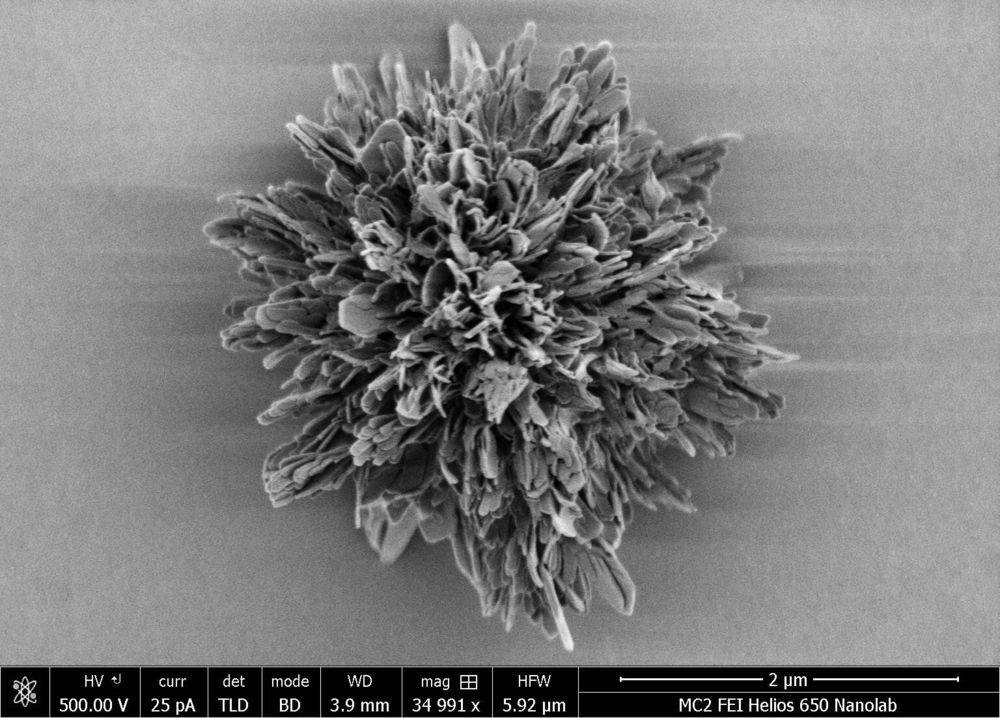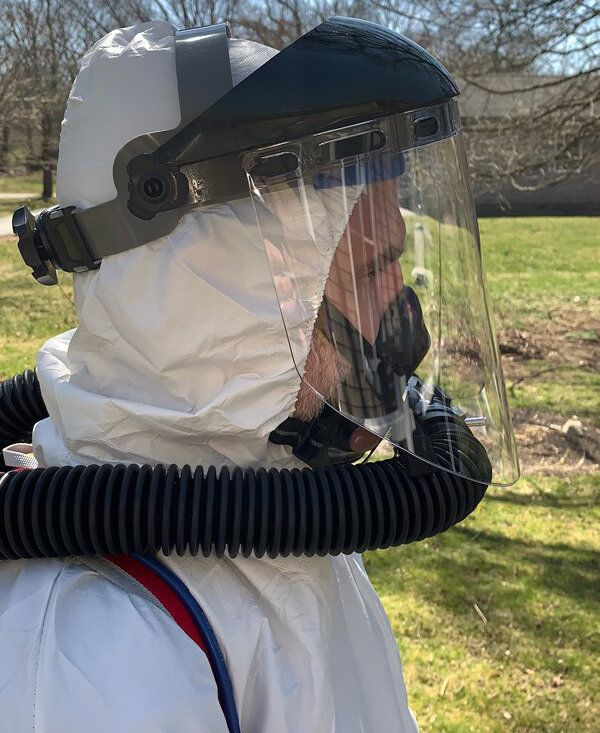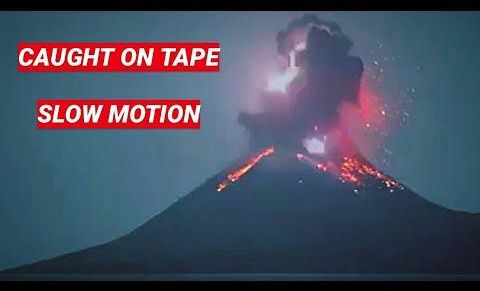Apr 11, 2020
World’s most complex microparticle: A synthetic that outdoes nature’s intricacy (Update)
Posted by Gerard Bain in category: particle physics
Synthetic microparticles more intricate than some of the most complicated ones found in nature have been produced by a University of Michigan-led international team. They also investigated how that intricacy arises and devised a way to measure it.
The findings pave the way for more stable fluid-and-particle mixes, such as paints, and new ways to twist light—a prerequisite for holographic projectors.
The particles are composed of twisted spikes arranged into a ball a few microns, or millionths of a meter, across.


















